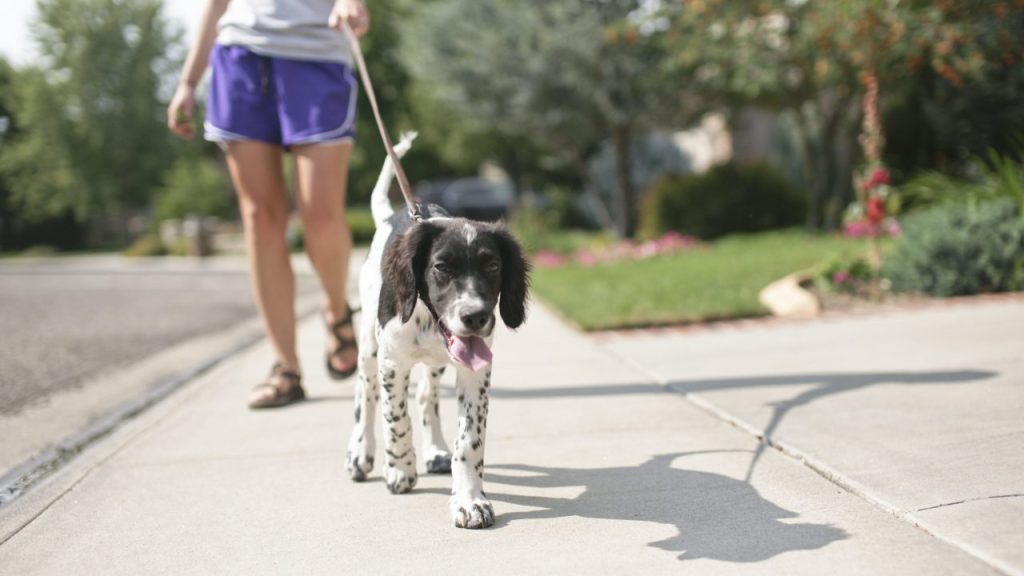Stopping your dog from pulling is just one important part of walking your dog. When out walking, you want your dog to pay attention to you, avoid obstacles, and avoid injury. By teaching some basic commands, you can help your dog pay closer attention to you and your surroundings, making walking together a success.
Why are good leash manners important?
You want to stay safe on your walks. By instilling good leash manners, you can make sure that your dog can navigate a walk safely at your side. Good leash manners can also help when small children or other pets are around. It can also help prevent a fight from breaking out, or an accident if your dog gets loose.
In addition to these tricks for walking your dog, it’s a good idea to get your dog used to their collars, leashes, harnesses, and any other items you bring with you on a walk such as strollers or bikes. Be sure to practice putting on and taking off your dog’s leash and collar, or hooking them to you or any accessories before you go out. A high-value treat such as lunch meat or a hotdog piece can be given every time you do to help encourage them.
Here are five top tricks for walking your dog that you should put into practice today.
Watch Me
“Watch me” is a great command that is useful in almost every situation where you need to get your dog’s attention. You can use it on walks, before training sessions, or even at home. Start by grabbing a few of your dog’s favorite treats. Then, place the treat in front of their nose until they pay attention. From there, slowly move the treat up to your forehead, asking your dog to “Watch me”. Once your dog looks up or makes eye contact, praise and reward.
Wait
A less formal version of stay, “Wait” is great for keeping your dog in place in temporary situations, such as walking out the door or waiting on a sidewalk. It lets your dog know that they need to pause for a moment before the activity continues. Start by having your dog sit next to you while on leash. Then, ask them to “Wait”, and count to five. If your dog stays in place, praise and reward. From there, you can increase the duration your dog waits at your side, as well as mix up the locations you practice in.
Heel
Heeling has your dog walk at your side in contrast to loose-leash walking which gives your dog more freedom to wander around you. Heeling is great for navigating crowds, busy streets, or other places you need your dog to stick close. Begin by having your dog sit at your side. With a tight (but not choking) leash, place a treat on a stick or in your hands at your dog’s nose height. Ask them to “Heel” and begin walking a few steps forward with them. Then, praise and reward. From there, you can increase the distance of the heel.
Drop it
If you’ve ever owned a Labrador Retriever, you’ve probably dealt with your dog picking up something unwanted from the ground. “Drop it” can get your dog to release the item in their mouth so they don’t ingest something harmful. This can be taught fairly quickly with the “trading game”. Start by giving your dog a favorite toy and letting them play with it. Then, offer a high-value treat such as a piece of hotdog under their nose and ask them to “Drop it”. Most dogs will release the toy in favor of the more interesting item — the treat reward.
Go potty
While not really a trick, asking your dog to “go potty” every time they’re doing their business can help them associate the act with the command. This is great if you’re somewhere you need your dog to hurry up and go instead of taking their time sniffing around. Using a command can also help when on vacation or in a strange place — especially for dogs that have a habit of holding it!
These top tricks for walking your dog are a great way to make walks go a lot more smoothly. If you’re interested in learning more tips and tricks for walking your dog, check out some good leash behaviors to train. Or, find the right leash for you and your dog with this guide to hands-free leashes.









